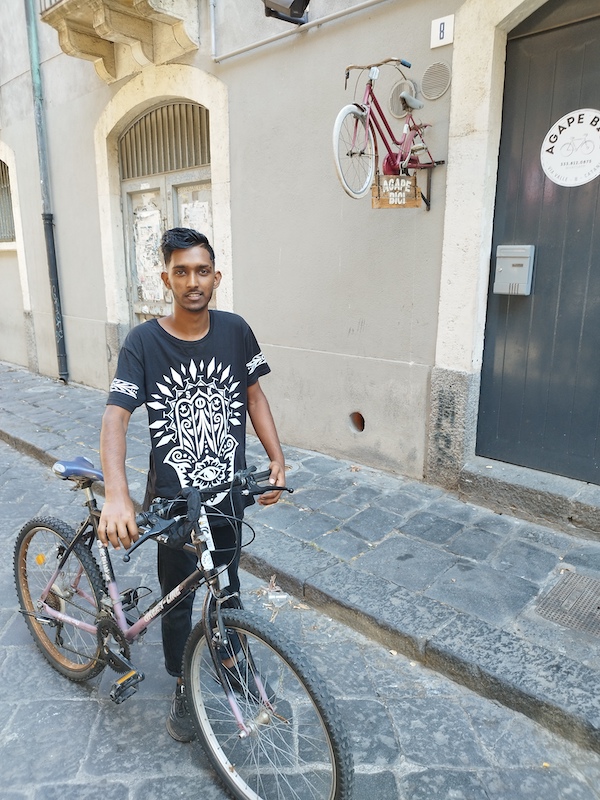Visa
- First, you need to find out with which consulate you should connect. The consulate will want to see your driver’s license, so whichever state your driver’s license is from is the state that will connect you to your consulate. You can see the mapping of the consulate to the state on this page: https://ambwashingtondc.esteri.it/ambasciata_washington/en/informazioni_e_servizi/la_rete_consolare/
- Next, go to the website for your consulate and find the visas section. Assuming that you are receiving a religious worker’s visa, find the non-Catholic version and you will see the list of requirements there. Start working on gathering your documents!
- We highly recommend that all adults be ordained by their church to allow each to have their own visa. You should find that the approval process will work more smoothly this way.
- You will need to connect with your Search Party supervisor to help connect you with your inviting church and coordinate your invitation letter. The church where you will be based should issue the invitation letter for the exact dates of your arrival for one year.
- When you are sure that you have completed all of your preparation activities and are ready to make your flight arrangements to come to Italy, you should make your appointment with the consulate. You will need to go there in person at the day and time of the appointment to submit your documents. Once everything is approved, they will send you the passports with the visas inside in the pre-addressed envelope that you provide to the consulate.
Fiscal Code (Codice Fiscale)
- One of the first documents that you will need in Italy is your Codice Fiscale. This will allow you to transact business in Italy, including signing rental contracts.
- You should be able to apply for your codice fiscale with just your passport and your visa, but some of the officials ask for the permesso di soggiorno also. If this happens, show them your visa within your passport and they should allow you to complete the process.
- More information on obtaining the Codice Fiscale is available here: https://www.idealista.it/en/news/legal-advice-italy/2018/06/22/2223-how-get-your-codice-fiscale-italy
Residency Permit (Permesso di Soggiorno)
- Within 8 days of arriving in Italy, you must submit your application for a residency permit, also known as the permesso di soggiorno.
- You can read a thorough explanation of the process here: http://italyproject365.com/how-to-obtain-a-permesso-di-soggiorno/ We recommend going to a patronato to help prepare the documents for your permesso di soggiorno. You will likely pay a small fee, but it can be worth it to make sure your documents are well-organized.
- When it is time to renew your permesso di soggiorno, you should start that process about 60 days prior to the expiration date of your current permesso.
Italy National Identity Card (Carta d’Identità)
- Your Carta d’Identità will become your primary way of identifying yourself after you receive it and should allow you to leave your passport at home.
- It is a relatively simple process to apply for the card and there are additional details here: http://paradiseofexiles.com/post-5-getting-the-carta-didentita/. We have generally found these Anagrafe offices inside of the city’s Comune (government offices).
- The Carta d’Identità costs about €30.
Healthcare Card (Tessera Sanitaria)
- The Tessera Sanitaria is used for healthcare requirements, and is generally also requested when someone needs your codice fiscale as it is printed on the Tessera Sanitaria card.
- You can apply for the Tessera Sanitaria at an ASL office. Probably the easiest way to find one of those offices is to search for Azienda Sanitaria in Google Maps and it should bring up the local offices near you.
- Additional details on applying for your Tessera Sanitaria are here: https://www.doctorsinitaly.com/how-to-get-tessera-sanitaria/
- Note that, despite having this card, you will also need to still carry health insurance while in Italy. We have generally had good luck with finding a policy with Good Neighbor Insurance.
Italian Residency Certificate (Certificato di Residenza)
- This document may or may not be necessary. At times, it has been useful when buying a car as you must be an Italian resident to purchase a car.
- If needed, you can apply for this at the Anagrafe office, which we have typically found in the Comune of your city.
Driver’s License (Patente di Guida)
- We are still in process to complete the driver’s license (yes, we should have done it by now!), but there is decent information on the internet of how this process works. You can see information here: https://www.limonatalounge.com/how-to-get-a-drivers-license-in-italy/







